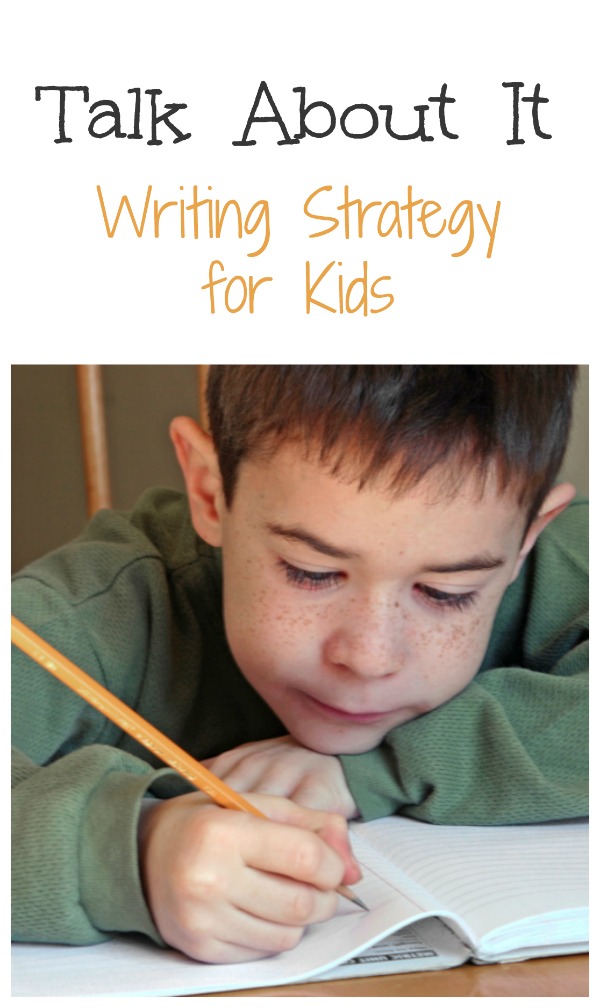Writing homework can be a big struggle for many students. This can also mean big headaches for parents as they try to figure out a way to get through the assignment. I’ve spent a couple weeks trying to figure out where the root of the struggle might be for some kids. They may say they “hate writing” or that they have “nothing to write about.” They may also choose to write about something so simple because they feel it is the easier way to get the assignment done correctly. A student might choose to write about cats because they know how to spell cat. They might fill the page with 3 word sentences that sound like a robot. These are all just excuses and easy ways to get out of the assignment.
If the homework stated: Tell an adult about a sea creature.
I know without a doubt, students could go on and on about any number of topics. Their talking would be full of details. The expressions on their faces would be engaging.
However, when kids look at a blank homework sheet it is a different experience. Why?
For this homework help strategy I decided to go with what works….Talk about it!

~~~
Homework Given: Student must write a response to a prompt.
Goal: To get the student to match the level of speaking vocabulary into the writing.
Strategy: Talk it out
Have a conversation with the student at the start of the assignment. Read the prompt/topic together. Then talk about possible ideas.
I like to jot down the topic and ideas on a piece of paper as the student is talking. I draw little pictures about what the child is talking about. It is easy to get more details that might be missing with simple questions like: What does it look like? Where does it live? What does it eat?
I also ask more open-ended questions to get more elaborate responses. Why did you choose this animal? Tell me about a time when you saw this creature?
This picture shows the responses given by a kindergarten boy about his favorite sea creature.
He decided he wanted to tell me about an eel. He told me about how it looks, and how the fin on his back helps him swim. He told me that some eels could sting you. There are also eels that light up in the dark water. He went on to say that he loves to see the eels at the zoo.
Within a few minutes he was able to pick a topic and give me over 4 details. For a beginning writer (5 to 6 years old), this is awesome!! At this age I am not as concerned with spelling. My focus is helping the child get his thoughts onto paper. Each picture is basically a detail sentence. As he starts to write, he checks off each picture as he writes about the detail.
When he is done, he rereads his paragraph to make sure it makes sense. This also helps me understand what the misspelled words are. His sentences are written with his voice. He used words in his talking paragraph that he doesn’t know how to spell. Instead of picking easier sentences to write, he must use inventive spelling to get his ideas across to the reader. Examples of these words are shape, sting, and light.
His paragraph states:
I like the eel. It has a shape on his back. It could sting you. They light up. I like to see eels at the zoo.
Important Note: There are NO eraser marks on his writing. I did not ask him to change anything! These are his ideas and how he wants to put them on his paper. I am not worried about his spelling. I praise him for getting his thoughts on the paper. I applaud him for the use of capital letters and punctuation where it was appropriate.
I am so proud of this young man!! He is growing leaps and bounds in his writing.
~~~
Help your little talker become a writer. Let thoughts become written sentences. Turn a graphic of spoken ideas into a map for completing a writing assignment.
A little confidence can go a long way!
This post has been shared at some of these fantastic link parties.



Milla Writer
I fully agree with your words that many young students need help with their homework. In General, I believe that homework in schools and colleges should be canceled, since most of the tasks are done only to take away free time from the child. A child should not spend hours doing homework, instead of learning what he really interesting and will be of great benefit in the future. Do you agree? It would be much better if parents themselves could control the curriculum of their children, and each child could only study what he needs. Thank you for sharing this interesting article!
Susan W
This is a great way to begin modeling the brainstorming process with young learners. Thanks for sharing at the Thoughtful Spot Weekly Blog Hop!
Sara
That’s a great paragraph for a beginning writer! Thank you for sharing how you talk your son through the writing process. 🙂